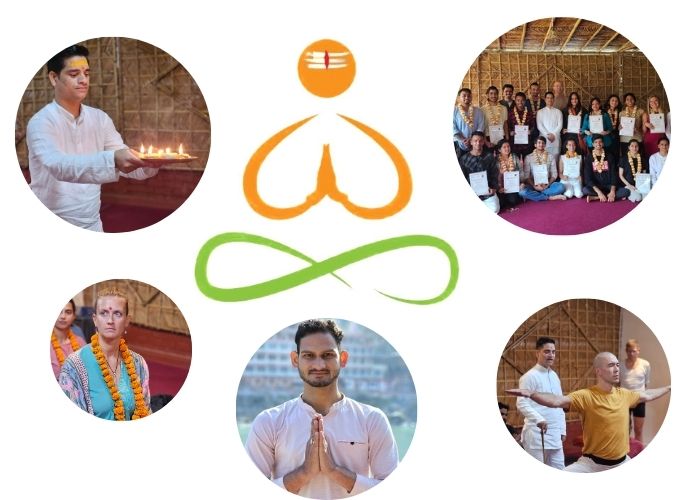

Upasana Yogshala is the best yoga teacher training school in Rishikesh, India offering authentic yoga teachings in a peaceful environment for physical and spiritual growth.
Upasana Yogshala, is the best yoga school in Rishikesh. It is a place of yogic wisdom and holistic health in the spiritual heart of Rishikesh, India. Our school is more than just a place to train to be a yoga teacher; it’s a safe place where old ways of doing things meet new ones, allowing for change and self-discovery.
At Upasana Yogshala, we see a world where people embrace the deep teachings of yoga, which brings their mind, body, and spirit into harmony. Our goal is to help those who are looking for answers on this life-changing journey become skilled yoga practitioners and kind teachers.
YOGA TEACHER TRAINING COURSES WE OFFER:


Discover the transformative power of our courses that go beyond the physical practice, encompassing philosophy, mindfulness, and lifestyle.

Learn from seasoned yoga practitioners and dedicated instructors committed to sharing their expertise and passion for yoga.

Experience a curriculum designed to cater to practitioners of all levels, from beginners to advanced students, ensuring a personalized and progressive learning journey.

Join a vibrant and supportive community where learning extends beyond the mat, fostering connections and encouragement throughout your yoga education.
Yama refers to ethical guidelines that govern our behavior and interactions with others. These principles are universal and include non-violence (Ahimsa), truthfulness (Satya), non-stealing (Asteya), sense control (Brahmacharya), and non-possessiveness (Aparigraha).
Niyamas are personal practices centered on self-discipline and spiritual growth. They include cleanliness and purity (Saucha), contentment and acceptance (Santosha), discipline and persistence (Tapas), self-study and the study of sacred texts (Svadhyaya), and surrender to a higher power or devotion (Ishvara Pranidhana).
Asanas are physical postures practiced in yoga. These poses are designed to develop strength, flexibility, balance, and endurance. The practice of asanas prepares the body for meditation by keeping it strong, flexible, and relaxed.
Pranayama involves breath control. This practice is designed to strengthen the connection between the body and mind. It involves techniques to control the breath to improve the flow of prana (life force energy) in the body.
Pratyahara is the practice of withdrawing the senses from external objects. This withdrawal helps us to turn inward and prepare the mind for meditation. It is the bridge between the outer and inner aspects of yoga.
Dharana is the practice of focused concentration. It involves training the mind to focus on a single point or object, such as a mantra, the breath, or a visual object. This helps to eliminate distractions and improve mental focus.
Dhyana is the practice of meditation, where the mind is completely absorbed in the focus of meditation. It is an uninterrupted flow of concentration, leading to a state of profound stillness and peace.
Samadhi is the state of enlightenment and union with the divine. It is the culmination of all the previous practices, where the practitioner experiences a state of oneness with the universe, transcending the individual self.
The Eight-Limbed Path, also called Ashtanga Yoga (ashta = eight, anga = limbs), is a step-by-step framework presented in the second chapter of the Yoga Sutras. It provides a structured path for self-discipline, personal growth, and spiritual awakening.
The Eight-Limbed Path provides a holistic approach to yoga, encompassing physical, mental, and spiritual practices. By following this path, practitioners can purify the body and mind, cultivate inner peace, and ultimately attain liberation from suffering.
In essence, the Yoga Sutras and the Eight-Limbed Path offer a roadmap to living a balanced and harmonious life, fostering physical well-being, ethical living, mental clarity, and spiritual fulfillment.
WhatsApp us